题目内容
| |||||||||||||||||||||||||||||||||||||||||||||||||||||||||||||||||||||||||||||||||||||||||||||||||||||||||||||||||||||||||||||||||||||||||||||||||||||||||||||||||||||||||||||||||||||||||||||||||||||||||||||||||||||||||||||||||||||||||||||||||||||||||||||||||||||||||||||||||||||||||||

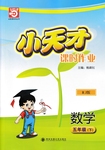 小天才课时作业系列答案
小天才课时作业系列答案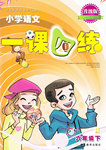 一课四练系列答案
一课四练系列答案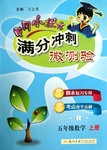 黄冈小状元满分冲刺微测验系列答案
黄冈小状元满分冲刺微测验系列答案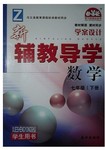 新辅教导学系列答案
新辅教导学系列答案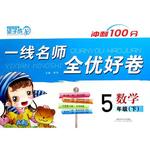 阳光同学一线名师全优好卷系列答案
阳光同学一线名师全优好卷系列答案完形填空
The Brick
About ten years ago, a young and very successful manager named Josh was travelling down a Chicago neighborhood street. He was going a bit fast in his 1 car.
He was watching for kids rushing out from between parked cars. 2 his car passed, no child rushed out, but a brick did and WHUMP! It 3 his shiny black side door! Josh 4 out of his car, grabbed the kid and pushed him up 5 a parked car. He shouted at the kid,“ 6 was that all about and who are you? Just what are you doing?”He went on with 7 “That's my new Jaguar, that brick you threw is going to cost you a lot of money. Why did you throw it?”
“Please, mister, please…I'm 8 ! I didn't know what else to do!” 9 the youngster.“I threw the brick 10 no one else would stop!”Tears were dripping down the boy's chin as he 11 around the parked car.“It's my brother, mister,”he said.“He rolled 12 the sidewalk and fell out of his wheelchair and I can't 13 him up.”Sobbing, the boy asked the manager,“Would you please help me get him 14 into his wheelchair? He's hurt and he's too heavy for me.”
15 beyond words, he lifted the young man back into the wheelchair and took out his handkerchief 16 wiped the cuts, checking to see that everything was going to be OK. He then 17 the younger brother push him down the sidewalk toward their home.
It was a long and slow walk back to his expensive car. Josh 18 did fix the side door of his Jaguar. He kept the damage to 19 him not to go through life so fast that someone has to throw a brick at him to get his attention. Pay 20 to the bricks of life coming at to you.
|
(1) A.old |
B.expensive |
C.secondhand |
D.slow |
|
(2) A.Since |
B.After |
C.As |
D.So long as |
|
(3) A.struck |
B.destroyed |
C.wiped |
D.harmed |
|
(4) A.climbed |
B.stepped |
C.got |
D.jumped |
|
(5) A.against |
B.on |
C.with |
D.toward |
|
(6) A.How |
B.Why |
C.When |
D.What |
|
(7) A.eagerness |
B.anger |
C.punishment |
D.displeasure |
|
(8) A.discouraged |
B.disappointed |
C.sorry |
D.hopeless |
|
(9) A.Explained |
B.Cried |
C.Shouted |
D.Added |
|
(10) A.until |
B.if |
C.before |
D.because |
|
(11) A.hid |
B.pointed |
C.ran |
D.searched |
|
(12) A.far |
B.away |
C.off |
D.onto |
|
(13) A.lift |
B.raise |
C.hold |
D.pick |
|
(14) A.over |
B.up |
C.down |
D.back |
|
(15A.Encouraged |
B.Moved |
C.Excited |
D.Frightened |
|
(16) A.so |
B.but |
C.and |
D.or |
|
(17) A.watched |
B.noticed |
C.saw |
D.observed |
|
(18) A.ever |
B.seldom |
C.hardly |
D.never |
|
(19) A.require |
B.remind |
C.warn |
D.keep |
|
(20) A.love |
B.turn |
C.attention |
D.respect |
完形填空 (20分)
The famous British inventor George Stephenson was born in 1781 and died in 1848. one of his _21_ important inventions was the train. He _22_his first train when he was forty-four years old. When he was experimenting with the _23_ engine on the train, he met with _24_ from the government, newspapers and the gentlemen in the country. They said that the noise and the smoke would _25_ cows, horses and sheep, that the _26_ would hurtle(炸飞) or that the hot coals from it would _27_their houses. At that time, _28_ people believed what they said.
George Stephenson _29_ the people that the train could go on small _30_, could pull carriages _31_goods and passengers and there was _32_ to them. It was a very _33_ matter for him to _34_ them believe. However, after _35_, he was able to do it; and the first train that _36_ by Stephenson himself _37_ what he had said.
The first day _38_ the people along the way _39_ the noises of the train _40_ and saw it running quickly to them, they ran back home as quickly as they could and closed their doors tightly, for they thought it a genius. They did not dare to come out until it had passed.
| 【小题1】 |
|
| 【小题3】 |
|
| 【小题4】 |
|
| 【小题5】 |
|
| 【小题6】 |
|
| 【小题7】 |
|
| 【小题8】 |
|
| 【小题9】 |
|
| 【小题11】 |
|
| 【小题12】 |
|
| 【小题13】 |
|
| 【小题14】 |
|
| 【小题15】 |
|
| 【小题16】 |
|
| 【小题17】 |
|
| 【小题18】 |
|
| 【小题19】 |
|
| 【小题20】 |
|